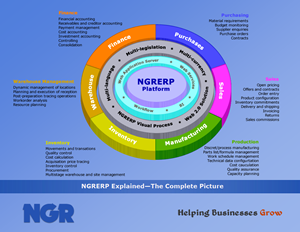Food Processing
The Indian food industry is poised for huge growth, increasing its contribution in world food trade every year. In India, the food sector has emerged as a high-profit sector on the back of the scope it offers for value addition, particularly with the food processing industry getting recognised as a high-priority area.
Accounting for about 32 per cent of the country’s total food market, the food processing industry is one of the largest industries in India and is ranked fifth in terms of production, consumption, export and expected growth. The total food production in India is likely to double in the next 10 years with the country’s domestic food market estimated to reach US$ 258 billion by 2015.
Market Size
The Indian food and grocery market is the world’s sixth largest, with retail contributing 70 per cent of the sales. It is projected to grow at the rate of 104 per cent, touching US$ 482 billion by 2020.
The Indian food processing industry accounts for 32 per cent of the country’s total food market, 14 per cent of manufacturing GDP, 13 per cent of India’s exports and six per cent of total industrial investment.
Indian food service industry is expected to reach US$ 78 billion by 2018.
The Indian gourmet food market is currently valued at US$ 1.3 billion and is growing at a CAGR of 20 per cent. It is expected to cross US$ 2.8 billion by 2015.
Indian food brands are increasingly finding prime shelf space in retail chains abroad. These include Bikanervala Foods, MTR ready to eat foodstuff and ITC’s Kitchens of India.
The online food ordering business in India is in its nascent stage. Share of online food ordering would be in single digits of the overall food ordering business which in 2014 was estimated to be around Rs 5,000-6,000 crore (US$ 800.19-960.12 million). We are growing at 20-30 per cent month-on-month.
The poultry sector of India is expected to register double-digit growth in 2015 on the back of stable feed prices and encouraging rural demand.
Road Ahead
Adoption of food safety and quality assurance mechanisms such as Total Quality Management (TQM) including ISO 9000, ISO 22000, Hazard Analysis and Critical Control Points (HACCP), Good Manufacturing Practices (GMP) and Good Hygienic Practices (GHP) by food processing industry enable adherence to stringent quality and hygiene norms and thereby protect consumer health, prepare the industry to face global competition, enhance product acceptance by overseas buyers and keep the industry technologically abreast of international best practices.
Dairy
India is set to become the world's most populated country by 2030 with around 1.53 billion people and more than 19% of world’s population by the same time.
The country, housing currently approximately 18% of world population, is growing at the rate of 1.3% annually, but has only 7.3% of global arable land and faces a huge challenge ahead for its agricultural sector to feed these extra mouths.
NGRERP Explained

NGRPulse as an Inbound Marketing Platform

